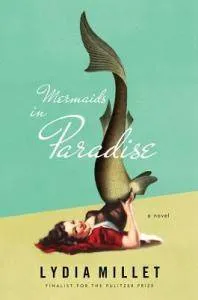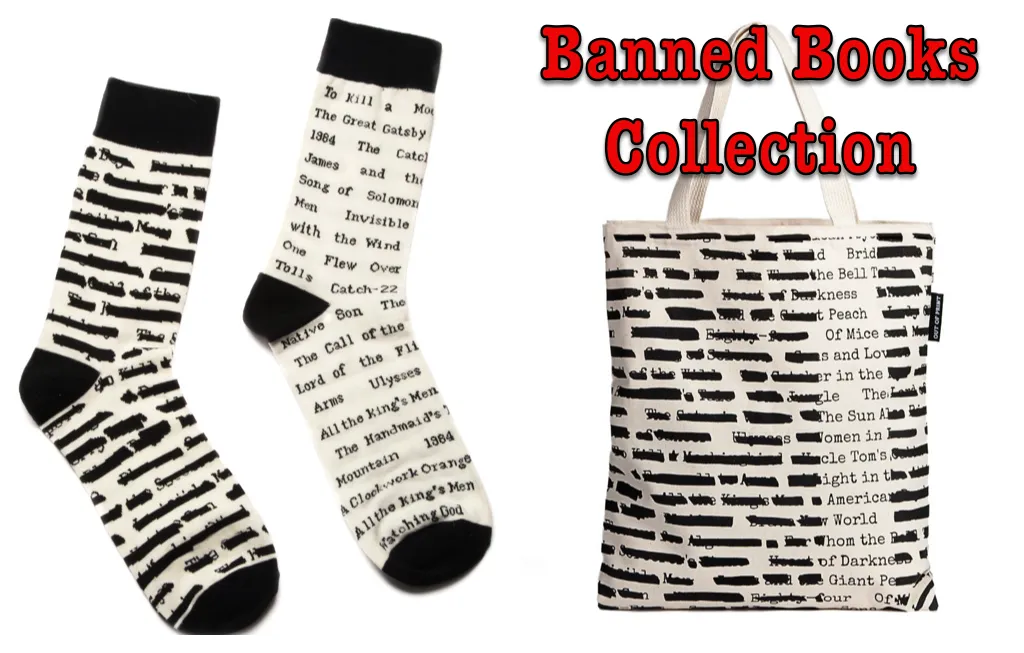
Riot Round-Up: The Best Books We Read in December
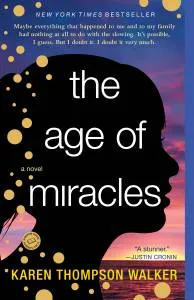 The Age of Miracles by Karen Thompson Walker
The Age of Miracles by Karen Thompson Walker
This one’s been out since 2012, so I’m sure other Rioters have noted it at some point, but if you haven’t come across it yourself, I highly recommend it. Walker’s simple and straight forward tone explains an incredibly overwhelming topic– essentially the end of the world as the Earth begins to slow its rotations. You experience this through the eyes of twelve-year-old Julia who tries to fully grasp the world and how her nieghborhood and parents are reacting. What I appreciated about this book was the incredibly well-explained situation (plants are dying, tides are altering, gravity is getting stronger) coupled with the everyday conflicts that will never disappear from life as a tween. — Jessi Lewis
 The Art Of Asking by Amanda Palmer
The Art Of Asking by Amanda Palmer
Being someone who has enjoyed much of Amanda Palmer’s music I was looking forward to reading this book, and I wasn’t disappointed by it. A book about giving and receiving, about art, about relationships (of all types), about authenticity this is essentially an anecdotal memoir full of the authors reflections on what she has learnt and come to understand about life from living, and from observing those around her. The Art Of Asking connected to many of my own thoughts on loneliness, and honesty, and community, and I found a number of personally helpful things to glean from these pages. — Rah Carter
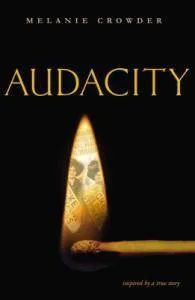 Audacity by Melanie Crowder (Philomel, January 6)
Audacity by Melanie Crowder (Philomel, January 6)
This historical novel-in-verse, based on the life of Clara Lemlich, is a brilliantly feminist exploration of the labor rights movement at the turn of the 20th century. After having to flee their home country of Russia because of anti-Jewish sentiment, Clara’s family immigrates to New York City, where she’s forced to take up a job to help support the family. Clara, who craves an education and wants to learn English to better herself, begins taking classes after work to carve out something for herself in her new world. That education leads her to better understand the massive corruption and inequities in her life, as well as the lives around her, in factory work. She becomes an active part of the union movement, rallying for worker rights, even though it gets her in major trouble and causes a rift in her family. The use of verse in this book is noteworthy and aids in the storytelling, rather than distracts from it. One of the smaller plot elements of the novel, though, might be my favorite: Clara has a serious boyfriend throughout her life, and he’s there as a support to her work, but he never gets in the way of it. The acknowledgement that a hard-working, passionate activist can still have a romantic life that is separate from that was nice to see. I think 2015 is going to be a tipping point for feminist YA fiction, and Crowder’s book is an outstanding start to that. — Kelly Jensen
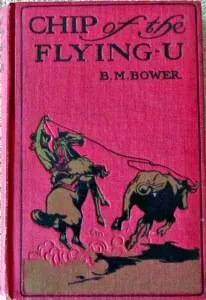 Chip of the Flying U by B.M. Bower
Chip of the Flying U by B.M. Bower
B.M. Bower was the first woman to successfully write westerns, and after reading this–her first novel–I can definitely see why. She was a damn good writer and her books are filled with well-rounded, quirky characters, classic western hijinks, and just a touch of romance. Della Whittemore, a “lady doctor,” moves to her brother’s ranch in Montana, The Flying U. The ranch hands are nervous Della’s going to make them go to church or some such, but she quickly wins them over with her wit and laid back attitude–all of them except for the irresistible Chip, that is. Although some of the medical descriptions in the book were questionable, I loved that Della had her own career and goals. But the real star of the book is Chip, who is clearly based off the painter Charles M. Russell. The story’s fast and delightful and I was sad when the book was over. Fortunately Bower wrote a whole series of books centering around The Flying U. I don’t normally go for westerns, but Bower has converted me–I’ll definitely be reading more of her books in 2015! — Tasha Brandstatter
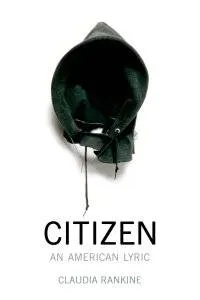 Citizen by Claudia Rankine
Citizen by Claudia Rankine
After reading Citizen, it’s hard not to hear Rankine’s voice as I ride the subway, walk around NYC, or even pick up other books. What did he say? What did she just do? We live in a culture as full of microaggressions as breaking new headlines, and Citizen brings it home. Whether Rankine is talking about tennis or going out to dinner, or spinning words until you’re not sure which direction you’re facing, there is strength, anger, and a call for white readers like myself to see what’s in front of us and do better, be better. — Jenn Northington
 The Golden Compass by Philip Pullman
The Golden Compass by Philip Pullman
I first read Philip Pullman’s His Dark Materials trilogy when I was in high school. I’ve had the series on my shelves ever since, but I think this is the first time I’ve decided to reread them. Set in several worlds, including our own, the trilogy is a coming-of-age story about two children, Lyra Belacqua and, starting in the second book, Will Parry. I’m just through the first book, The Golden Compass, and finding it entirely wonderful. The story is more much theoretical and challenging than I remember from my first read, but the characters are just as vivid. I’m excited to dive into books two and three, The Subtle Knife and The Amber Spyglass. — Kim Ukura
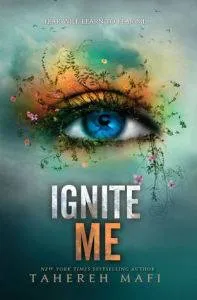 Ignite Me by Tahereh Mafi
Ignite Me by Tahereh Mafi
I read the entire Shatter Me trilogy in just a few days, and I just plain loved it- the finale most of all. The trilogy has a few of your typical YA dystopia tropes: there’s a love triangle, and a Girl As Chosen One Who Is Mostly Insecure About Herself, etc.- but what makes this trilogy stand apart is Mafi’s writing style. The main character is physically, mentally, and emotionally abused, and she develops these internal and verbal tics that Mafi showcases by playing with punctuation, repetition, counting, and flights of metaphor. The protagonist, Juliette, has fantastic abilities that the government wants to exploit, and she learns to fight back. If you ever wanted to read a YA novel where Summer Glau from Firefly was the main character, this is as close as you’re ever going to get. — Amanda Nelson
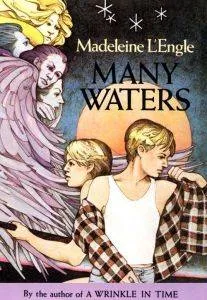 Many Waters by Madeleine L’Engle
Many Waters by Madeleine L’Engle
This book, with this cover, has been on my wishlist since I read it at my local library as a youngster – and now, thanks to a used bookstore bargain find ($3 for the hardcover!!) my wish is complete. Part of the (Wrinkle in) Time Quintet, this installment follows the ‘normal’ members of the Murray family, twins Sandy and Dennys, as they stumble upon and mess with one of their brilliant parent’s science experiments, and wind up tesseracting (transporting) to B.C. earth, landing smack in the middle of a well-known Biblical story about to come to a really bad ending. (Hint: check the title for clues.) With seraphim, nephilim, and unicorns – OMG. Perfect holiday reading material. I did not remember a single thing about this book, but wow, was the re-read worth it! — Alison Peters
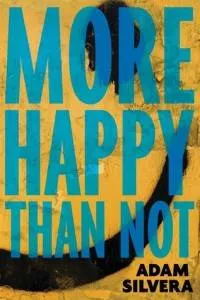 More Happy Than Not by Adam Silvera (Soho Teen, June 15th, 2015)
More Happy Than Not by Adam Silvera (Soho Teen, June 15th, 2015)
Every now and again I read a book that requires me to drink several glasses of water afterward, because I’ve cried myself dehydrated. This is one of those books. Silvera’s debut novel reads like a YA version of Eternal Sunshine of the Spotless Mind, introducing readers to a gay teenager in the Bronx that opts to take a memory wiping treatment that’ll help him forget his feelings for a certain boy. Over the course of the emotionally charged novel, he tackles a lot of major issues; love, loss, sexual identity… and my goodness, it is incredible. I feel bad teasing this book six months before it comes out, but hey, hopefully you’ll pre-order it and love it this summer. — Eric Smith
Mermaids in Paradise by Lydia Millet
Jenny Offill recently interviewed Millet in Salon, and mentioned that Millet is “well known for [her] serious novels,” while her “comic novels have gotten less attention.” I have no idea whether this is a true statement about the world, but it was the opposite of my own experience with Millet, whose comic novels (and short stories!) I’ve loved since discovering them. Mermaids in Paradise was no exception, and December was the perfect time to read about a magical Caribbean vacation. — Nicole Perrin
 Murder in the Mews by Agatha Christie
Murder in the Mews by Agatha Christie
I discovered Poirot on Netflix, a long-running BBC show about an affable, fussy Belgian detective named Hercule Poirot. Completely charming and fun murder mysteries- more of a Murder She Wrote or Monk type than CSI or anything like that. Enjoying it, I realized that it was by Agatha Christie, whom I had never read anything by, and then I realized I had owned a copy of Murder in the Mews for eons, so I got it down and became completely hooked. It turns out Agatha Christie is really good, announces me, the last person to the party. She has a very spare, engaging style and Hercule Poirot is as engaging on the page as he is on the television screen. (And an interesting aside has been discovering how much of her style Isaac Asimov — an enormous Christie fan — really did borrow. I didn’t realize how pervasive she was in his robot detective novels until just now.) Anyway, that’s my Christmas holidays sorted. Eleven seasons of Poirot, and as many Agatha Christie stories as I can stuff into my face. — Peter Damien
 A Pale View of Hills by Kazuo Ishiguro
A Pale View of Hills by Kazuo Ishiguro
I picked this up a while ago in the B&N used books section, just because I saw the name “Ishiguro” and knew I’d love it (having loved Remains of the Day and Never Let Me Go). In anticipation of his newest novel, Buried Giant, I decided to read PVoH and boy oh BOY was I not disappointed. This was Ishiguro’s first novel, and you can already see his mastery of subtlety and a kind of hushed narrative that draws you in until you don’t realize that you’re reading anymore. You become a part of the story. And the complicated twist at the end nearly sent me off my chair, it was so creepy and well-done. Oh, and it’s about a middle-aged Japanese woman living in 1970s/80s England, thinking about her past in Nagasaki just a few years after the bomb. While one of her daughters is visiting her from London, they talk around the fact that the older daughter only recently committed suicide. It’s a beautiful and tragic story that Ishiguro raises to the sublime. — Rachel Cordasco
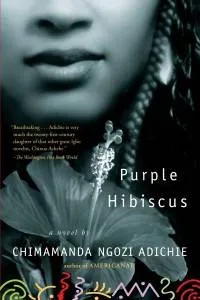 Purple Hibiscus by Chimamanda Ngozi Adichie
Purple Hibiscus by Chimamanda Ngozi Adichie
My end-of-year reading project was to dive into the backlists of authors I just discovered in 2014, and since Americanah was one of the standout reading experiences of my year (I came way late to this party, I’m sorry for it), I decided to start at Adichie’s very beginning. Purple Hibiscus is about Kambili, a 15-year-old girl growing up in Nigeria under the thumb of her overbearing, abusive father who is obsessed with reaching Christian perfection and seeing his wife and children live up to his expectations at any cost. When Kambili and her older brother Jaja go to stay with their aunt and cousins in another village, they step out of their privileged existence and get a taste of freedom and a glimpse at what a different kind of life could be like. This novel is hold-your-breath compelling, at turns heartbreaking and hopeful. Adichie’s writing is so self-assured and the voice and characters so fully realized, this is a remarkable book, period, but even more remarkable for having been a debut. — Rebecca Joines Schinsky
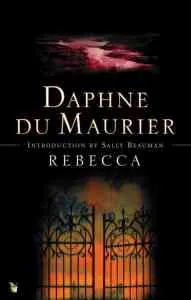 Rebecca by Daphne du Maurier
Rebecca by Daphne du Maurier
This month I finished Rebecca for a book club at work, and man, I have not had a book I’ve loved like this one in a long time. I wanted it to end so I could solve the mystery, but for days after I finished, I went to pick it up again because I hoped so much there would be more to read. My book club kept comparing it to a Bronte, but the more modern language and pacing made it completely un-put-down-able. It’s exactly the kind of scary I like: tense and a bit creepy, but with nothing gross or likely to make me check for monsters under my bed. Also read: the first piece of writing by Ann Patchett that I didn’t like (Run), and the first Ms. Marvel trade, which was excellent. — Jesse Doogan
 The Rules of Civility by Amor Towles
The Rules of Civility by Amor Towles
I picked up Towles’s snazzy debut because it looks exactly like the kind of fluffy brainless-but-slick confection that’s catnip to me this (let’s face it: kind of brain-dead) time of year, and in fact it starts out as exactly that. But this rags-to-riches story of Depression-era New York—and its main character, savvy social climber and self-invented Manhattanite Katey (born Katya of Brighton Beach)—takes on a surprising depth by the novel’s end, offering an ultimately moving commentary on growing up, dreaming big, and letting go. One caveat: the novel’s characters of color are disappointing caricatures, relegated mostly to jovial doormen and stock jazz musicians (reminding me of this astute critique of Donna Tartt’s The Goldfinch, a similarly glitzy New York novel with problematic racial politics). But for fans of F. Scott Fitzgerald (or, for that matter, Tartt herself), The Rules of Civility is still a solid treat. — Sarah McCarry
 The Secret Place by Tana French
The Secret Place by Tana French
There’s nothing I love more than girlfriends friending it up hard, and The Secret Place is, at its heart, a novel about female friendships and sacrifice and strength. But ALSO it is about murder and banter and private high schools and sssssecrets and young, amiable dude-cops trying to break into the Murder Squad, and smart, prickly lady-cops trying to BE in Murder Squad despite all the old-boy’s-clubism. It’s a ripping good read, and the language is at the same time sharp and clever, and ethereal in a way that I don’t find unbearably lame. Tana French 4 Ever. — Rachel Krueger
 Spinster: A Life of One’s Own by Kate Bolick (Crown Publishing, April 21, 2015)
Spinster: A Life of One’s Own by Kate Bolick (Crown Publishing, April 21, 2015)
I had some reservations about this book. I went into it a bit worried that it would be all, “marriage = bad; single = good,” but that wasn’t the case at all. Based on the author’s experiences of being a non-married woman, working and dating and coupling (however temporarily) in New York, this book takes a look specifically at the idea of what a “spinster” is, both in its current use and in historical context. But this book’s title plays at Virginia Woolf’s famous book A Room of One’s Own, and like Woolf’s work, Kate Bolick pays special attention to the life of the woman writer, investigating influential women in her reading life and how they navigated career, marriage, and life. In the end, Bolick manages to land in a place of hope, kindness, and independence for all women – married, single, divorced, widowed – and calls for all of us (women) to redefine and embrace spinsterhood, to figure out what we need and to claim it as our own. — Dana Staves
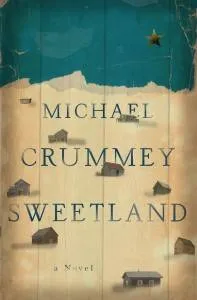 Sweetland by Michael Crummey
Sweetland by Michael Crummey
There is a really good chance that this will be my favorite book of 2015. I asked my boyfriend to smother me with a pillow so I couldn’t finish reading it, because then I’d be sad it was over, but for some reason he found that to be an unreasonable request. Geesh. But SEER EEE US LEE. It broke my damned heart to finish it. Moses Sweetland is a grumpy old man living on a small island in Canada (which is also named Sweetland.) The government wants to buy out all the island’s inhabitants and use it for their own purposes, which all the citizens of Sweetland think is great, except for Moses. He’s the only one refusing to sign the agreement, which is holding up the deal. This makes him very unpopular with his neighbors. This is a gorgeously written book, equal parts funny and sad, about home, and family, and loneliness, with small mysteries perfectly teased out until the end. My heart is fit to burst with love for it. — Liberty Hardy
 Together We Can Bury It by Kathy Fish
Together We Can Bury It by Kathy Fish
I’ll keep this short: After reading Together We Can Bury It, I’m convinced there are few living authors who are better at flash fiction than Kathy Fish. She packs an incredible array of life, in all its rich complexities, into each one of the 40 stories in this 2012 collection. Unlike many short-shorts, Fish’s fiction doesn’t lean too heavily on allegory or turn characters into symbols and it rarely (if ever) leaves the reader scratching her head in “WTF?!” befuddlement. These are beautiful slices of life–little gems that, at every turn, left me feeling like I was filled with sunlight. — David Abrams
____________________
Wear your love of banned books on your sleeve. Er, feet. And also your arm, with that rad tote. The Banned Books collection at the Book Riot Store:


